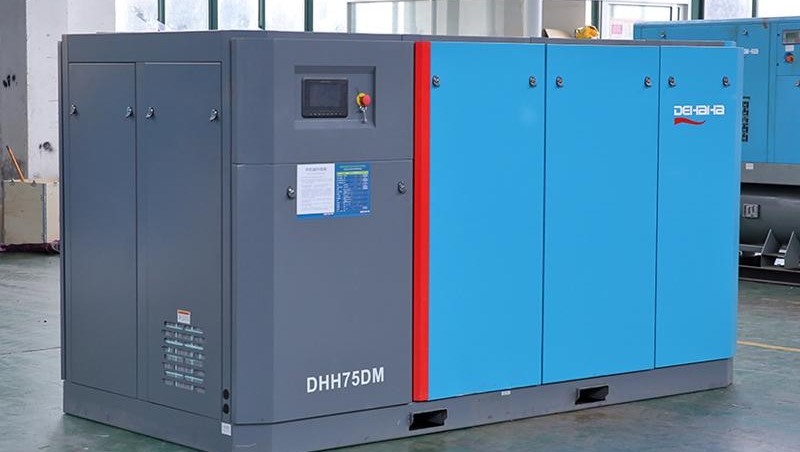When you’re operating a huge production floor or a production line that never stops running, you cannot afford that pocket size air compressor in your garage. You will require the heavy artillery–big industrial air compressors. Many operations in industry rely on these machines as they provide endless streams of compressed air to power tools and equipment and manufacturing processes.
What Are Industrial Air Compressors?
An industrial air compressor is an energy consolidating device that changes power into pressurized air. This air may then turn into the use of operating tools/machines or even cleaning and drying materials. Compressed air is the unseen power that drives every business in aerospace as well as food processing.
How to Define (The Size of) an Air Compressor?
Size & Power Capacity
A high-demand air compressor is created with lots of pressure. It is not hundreds of horsepower, and tanks that could hold hundreds of gallons of compressed air.
Produced Air Volume
A large industrial unit, measured in CFM (Cubic Feet per Minute), will expel greatly exceeding volumes of air compared to a normal compressor; usually, 100 CFM and above.
Kinds of large industrial air compressors
Rotary Screw Air Compressors
These are kings of unnecessary obligation. They also compress air by using twin screws rather than pistons. Ideal modification to operations, which necessitate constantly moving air.
Centrifugal Air Compressors
These compress air using high-velocity impellers very large industry requirements such as those of a refinery or chemical plant.
Reciprocating (Piston) Air compressors
Retro but strong. They use pistons to compress air and they are used sporadically or in smaller industries.
Industrial Applications Major Applications
Automotive
Air compressors are ubiquitous when it comes to the automobile manufacturing process and vehicle repair using pneumatic tools.
Manufacturing
Constant flow of clean and compressed air is needed on assembly lines and CNC machines.
Food & Beverage
When you’re operating a huge production floor or a production line that never stops running, you cannot afford that pocket size air compressor in your garage. You will require the heavy artillery–big industrial air compressors.
Many operations in industry rely on these machines as they provide Full Guide for Air Compressor Safety to power tools and equipment and manufacturing processes.
Conclusion
Big industrial air compressor So, what is a big industrial air compressor? It is not only another machine, but it is an engine which drives productivity in groups of dozens of industries. No matter how you look at it, industrial expansion or replacing old machines investing in the right compressor (particularly one in the rotary screw variety) can be a game changer.
Do not forget, performance comes with safety and maintenance. It is time to go big or go home in case you are serious about efficiency and uptime.
FAQs
- How does a rotary screw air compressor differ from a piston one?
Rotary screw compressors are meant to be used continuously, are less clamorous, and efficient. Piston compressors are noisier and are effective when on short bursts.
- How to determine the size compressor I require?
Determine the total CFM and PSI your tools or equipment need and have an increase of 25 percent in the future.
- Are air compressors, big ones, energy efficient?
Yes, particularly the rotary screw. And they are made very efficient with little wastage.
- Is it possible to utilize a large compressor through a small workshop?
You can, though it requires the proper electrical configuration, and consideration as to whether you have the adequate space to install it safely.
- How frequent is the service requirement of an industrial compressor?
The regular maintenance should be carried out at the intervals of 500-1000 hours of working, depending upon the model and usage.










































